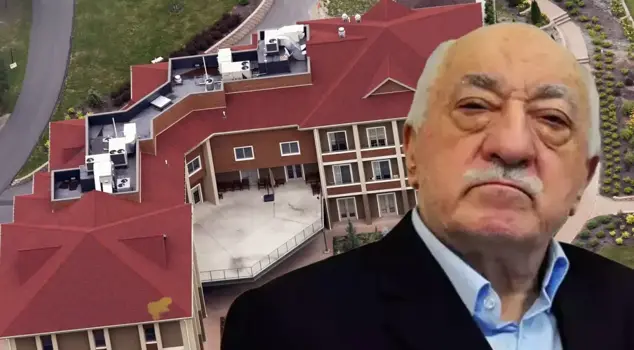
07.01.2025 13:21
Following the death of FETÖ leader Fetullah Gülen, issues within the organization continue to arise. Recently, it has been reported that there are difficulties in decision-making and financial problems within the 12-member 'Executive Committee' that took over the organization's leadership after Gülen's death. Although the organization’s leader Gülen had stated before his death that changes should be made in the 'Executive Committee,' no changes were implemented in the committee.
It has been learned that the 12-member delegation that took over the organization management after the death of FETÖ leader Fetullah Gülen is experiencing difficulties in decision-making and financial resources.
SECRET FIGHT WITHIN THE ORGANIZATION
According to information provided by security sources; after the death of FETÖ leader Fetullah Gülen, active days are being experienced within the organization. The power struggle among the groups formed within the organization after Gülen's death has turned into a secret fight among those who might sit in Gülen's chair.
12-MEMBER DELEGATION TO MANAGE THE ORGANIZATION
This tension in the upper management of the organization has also shown its effects at the grassroots level, and disbandments have started to increase. The names in the upper echelons of FETÖ revised the management style to prevent disbandments at the grassroots level. It was decided that the organization would be managed not by a single name for a while, but by an 'Executive Committee'. The 12-member delegation includes Abdullah Aymaz, Naci Tosun, Şerif Ali Tekalan, Barbaros Kocakurt, Mehmet Vehbi Yavuzlar, Cevdet Türkyolu, İsmet Aksoy, Muhammed Çetin, Ekrem Dumanlı, Said Kaya, Adem Kalaç, and Talip Büyük.
GROUP FORMATIONS HAVE STARTED
Among these names, there are those who want to be the sole ruler of the organization and those who support those names separately. Although the 'Executive Committee' tries to present a positive image, the group formations in the management have become palpable throughout the organization. Although decisions seem to be made by the 12-member delegation, the real influence in the committee is shown by Abdullah Aymaz, leading Mehmet Vehbi Yavuzlar, İsmet Aksoy, Adem Kalaç, Muhammed Çetin, and Talip Büyük.
DECISIONS TAKEN ARE BEING QUESTIONED
The cracks in the management have revealed disruptions in the decision-making process. Before the death of leader Gülen, the decisions made by this committee were ultimately approved by Gülen. However, now the decisions taken are being questioned by each member of the committee. This has started to cause disruptions in the decision-making process. The problems within the 'Executive Committee' are not limited to new decisions to be made. Despite the messages of unity, the distrust towards the committee at the grassroots level has become a problem for the upper management in finding financial resources. For this reason, the seemingly strong wing of the 'Executive Committee', namely Abdullah Aymaz and his team, has requested an increase in 'Himmet' rates.
GÜLEN'S REQUEST WAS NOT FULFILLED
Before his death, organization leader Gülen had stated that changes should be made in the 'Executive Committee'. He had instructed that the committee should be rejuvenated and that people from different nationalities should be included in the committee. However, the only common thought of the 12-member delegation has been to not relinquish power. A decision was made not to make changes in the committee under the pretext that the period following Gülen's death is a transitional period. One of the last names added to the committee was Ekrem Dumanlı, the former Editor-in-Chief of the closed Zaman Newspaper. It was expected that Dumanlı's inclusion would increase participation in the organization. However, Dumanlı did not create the expected impact. Those in the upper echelons of FETÖ believe that Dumanlı has portrayed a passive profile. There is a prevailing thought that Dumanlı is not at a level to be included in the committee due to not being respected at the grassroots level.
SO-CALLED RESPONSIBLE APPOINTMENTS HAVE CAUSED CONTROVERSY
Mustafa Özcan, one of the high-ranking members of FETÖ, did not join the 12-member 'Executive Committee'. Özcan did not want to be part of the committee, thinking that he would not be able to be prominent in a committee where Abdullah Aymaz and his team are influential. Additionally, the appointment of so-called country representatives for the year 2025 within the organization has also become a topic of discussion. It was announced that the appointments would be made by the 'Executive Committee'. Furthermore, changes are expected to be made in the 'Executive Committee' in February 2025. There is also a competition regarding the appointment of names close to themselves among the current organization leaders. In fact, the extent of the competition has even led to tensions during meetings. Some members of the 'Executive Committee' sent people close to them to work in Europe to secure their positions.